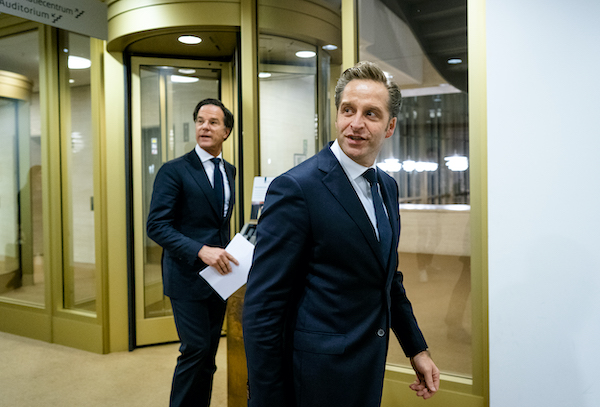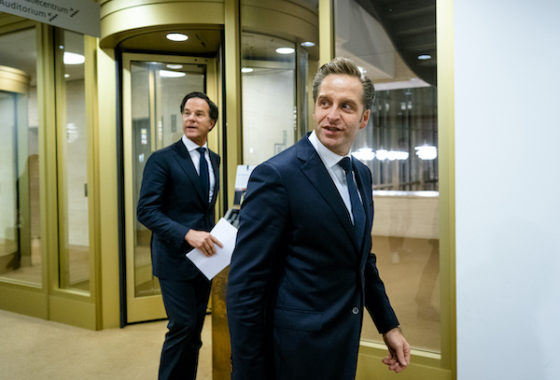Curfew decision delayed to weekend, everyone should be ‘vaccinated by autumn’


Government health experts have been asked to take a long, hard look at all the measures in place to combat coronavirus, including the curfew, to say if they are sufficient to deal with the ‘British’ variant of coronavirus, prime minister Mark Rutte told reporters on Tuesday.
This could mean that the curfew is extended past the deadline of the morning of February 10 but ‘it really depends on what the figures show,’ Rutte told reporters. ‘Everyone wants the curfew to end, which is why we have asked the Outbreak Management Team to decide.’
As expected, Rutte and health minister Hugo de Jonge confirmed that shops will be able to open for ‘click and collect’ services – so customers can order online and then pick up their order from the shop itself.
And, as stated at the weekend, primary schools and childcare facilities will reopen on February 8 under strict conditions. The wider lockdown will remain in force until March 2, with a review moment on February 23.
‘We want to be as clear as possible,’ Rutte said. ‘We all want certainty and a clear plan. But there is no such thing as 100% certainty.’
Rutte said that while the infection figures are going down, a third wave is on its way, based on the rise of the more infectious variant of coronavirus first identified in Britain.
Infection rate
‘Two-thirds of new cases are the British variant,’ Rutte said. ‘The latest insights suggest that it is 1.5 times as infectious as the older variety.’ The infection rate, or R rate, for the older version is now 0.85, but for the new mutation, it is 1.3, which means the number of cases are doubling in a week, Rutte said.
‘This is why we have no choice but to extend the lockdown to March 2, otherwise we will have to pick up the bill for being too optimistic now,’ Rutte said.’ It is our responsibility to take decisions based on the constant renewal of information.’
Vaccinations
Health minister Hugo de Jonge said the way back from the current lockdown is based on small steps. ‘This won’t be the latest update of the road map,’ he said. In particular, the vaccination stategy will have to be adapted to changes in the supply schedule, he said.
The Netherlands has ordered 80 million doses of vaccine and allocated 60 million by the EU procurement authorities, De Jonge said.
‘This is enough to vaccinate 35 million people,’ he said. ‘By the spring, the most vulnerable people in society should have been vaccinated… and I see no reason why everyone should not have been vaccinated before the autumn.’
The Netherlands has a population of 17.4 million.
Social aspects
De Jonge also said that the social aspects of the coronavirus crisis are becoming more urgent. More people are suffering from stress and psychiatric problems, he said. However, there is much being done at a local level. ‘We have to keep helping each other,’ he said.
Asked about the slow start to the Dutch vaccination programme, and mistakes made about recording how many vaccinations have taken place, De Jonge said it is important to admit it when something has gone wrong.
‘The last errors,’ he said, ‘have not been made when dealing with a crisis on this scale.’
Thank you for donating to DutchNews.nl.
We could not provide the Dutch News service, and keep it free of charge, without the generous support of our readers. Your donations allow us to report on issues you tell us matter, and provide you with a summary of the most important Dutch news each day.
Make a donation